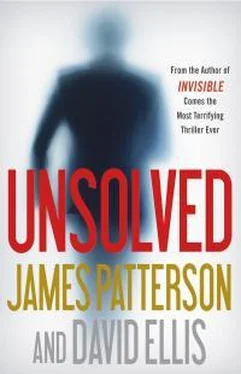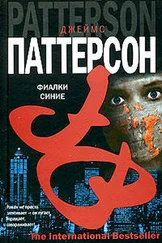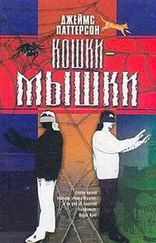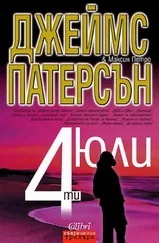It’s an alley, a narrow one between two buildings, wide enough for a single truck to travel through.
Wide enough, as well, for a homeless person sitting against the brick wall, long hair jutting from a maroon baseball cap on backward, wearing a filthy shirt that barely covers his navel, baggy gray trousers, and sandals. An empty McDonald’s bag is near him, as are three stray, half-smoked cigarettes.
“Spare change for the train, mister?” he mumbles, straightening up a little.
Charlie uses the remote on his wheelchair to turn toward the homeless man. He would guess that the man is in his mid-thirties, although it isn’t possible to discern much of anything given the grunge and foul odor.
“Train fare, mister?” the man says again.
Charlie tilts his head. “That would be an easier sell if you were more presentable, if you really looked like a commuter. From you, I’d expect something more along the lines of spare change for a cup of soup or coffee.”
The homeless man blinks, his eyes unfocused, the smell coming off him horrific. “Please, mister, train fare, mister, please?”
Charlie sighs. “I’ll bite. Where are you headed, friend?”
The man looks everywhere but at Charlie. “Met—Metro…station.”
“Tell me your destination,” says Charlie, “and I’ll gladly provide your fare.”
A pause. This is bordering on painful.
“Cap—capital,” he says.
“Wonderful! Where in the capital, friend?” Charlie looks about. Still nobody nearby. It’s been several months for him—in terms of a homeless person, that is. Not since Los Angeles. It was like shooting fish in a barrel out there, but he’d stopped after eleven. A pattern was developing. He couldn’t have that. He’s checked on the investigation from time to time, and, not to his surprise, the LAPD has lost interest in it, if it ever had any.
The senior citizens in Scottsdale were just as easy, but again he had to abort after nine. He didn’t have the patience to wait, and even the elderly didn’t die that consistently in one area over one small window of time. Another dreaded pattern.
It’s why he branched out. He’s thinking bigger now. Spreading out the geography and the time lapse. And his targets now are more meaningful. The homeless and elderly—their life spans weren’t that long anyway. What he’s doing now is having far more impact.
And now he’s perfected his technique. Now he has an ace in the hole.
Now he’s ensured he will never be caught.
“The…White House, White—” says the homeless man, doing his best. “White House.”
Charlie can’t suppress a small burst of laughter. “Lunch with the president?” he asks. “A meeting with the Joint Chiefs?”
Oh, it’s tempting.
Charlie prides himself on his discipline. He lives it, day in and day out. It’s what makes him different. He has thrived on it. He has never, ever acted impulsively, not once, not even when he was commissioned, especially when he was commissioned. Everything always carefully, meticulously planned, every detail considered, every small step executed with precision.
But he can live a little, can’t he?
“There is no such thing as unselfish charity,” Charlie says. “Pure fiction. Charity is, in fact, quite selfish. People don’t give charity to help the recipients. They do it to feel good about themselves. And all the while, we grow weaker and slower as a society. Wouldn’t you agree, friend?”
The man seems to shiver. His eyes still won’t connect with Charlie’s.
“Come closer,” Charlie says. “You want money, right?”
The man comes to life again, leans forward and positions his legs to rise as Charlie reaches into the pouch at his waist.
“Th-thanks, yeah, thanks, mister,” says the homeless man.
When the man has risen enough to expose his midsection, Charlie fires the darts. They strike the soft flesh of his stomach. He immediately convulses from the electric shock, spit shooting from his mouth, his eyes rolling back, and then falls flat.
Charlie lifts himself from the wheelchair and falls to the ground, still holding the trigger down, still delivering the electric charge to his helpless, convulsing friend. In one fluid, practiced motion, he sets down the Taser, throws the plastic bag over the man’s head like a cowboy’s lasso, pins one side of the bag down, and wraps it taut over the man’s stunned face.
Then he picks up the Taser with his free hand in case he needs to give another jolt.
The man, almost completely immobile, utterly helpless, tries to suck in frantic breaths, drawing the plastic into his mouth and out.
“This is not personal,” Charlie says. “I’m doing everyone a favor.” He looks away from the man’s bulging, desperate eyes. It really isn’t personal. It’s for the best. This man is nothing but a drain on society.
Or he was, at least.
When it’s over, quicker than Charlie would have expected—he might have had a heart attack before suffocating, hard to say—Charlie removes the plastic bag, stuffs it back in his pouch, takes the darts from the man’s stomach, and climbs back into the wheelchair.
He uses the remote to reverse his wheelchair, ready to shout, Help, someone, help, this man needs help!, should anyone happen to be strolling along the sidewalk.
But the street remains empty. He wheels himself forward again, back along the sidewalk, recognizing the recklessness of what he has just done but relishing the minor indulgence, silently congratulating the world on one more step forward. The weekend hasn’t been a total waste.
26
I FIND Books in the kitchen, washing the dishes from dinner last night. I’m about to walk over to him but decide against it.
He tilts his head, his back still to me.
“You didn’t answer my question,” I say. “If you knew somebody was running around killing people and nobody even knew it was happening, would you do nothing, or—”
“I didn’t answer the question,” he says, putting down the dish in his hand, “because it’s beside the point.”
“How— how could that ever be beside the point?”
Books turns to me and peers into my eyes. He’s squinting as if he’s searching for something, but I don’t know what. “You know what’s funny?” he says. “You were the one who opened my eyes to the fact that there was more to life than the job. It turns out I’ve learned that lesson from someone who hasn’t learned it herself.”
“There can’t be room for the job and for us?”
“Oh, forget about us for a second.” He waves his hands. “What about you, Em? You’re not even taking care of yourself. Twice you went back to these maniacal wild-goose chases and almost crashed and burned. Twice you promised you’d stop. And here you are again. You show up on Friday nights looking like you haven’t slept all week. You’re not doing any of the things you promised to do.”
“I’m doing fine.”
His face falls and his shoulders slump in disappointment and pain. Books doesn’t wear those emotions well. He’s the stoic type. It hits me now as it never has before: I have hurt him. I have hurt us .
His eyes return to mine. He says slowly, softly, “How’s therapy going?”
I bite my lip.
“Don’t.” A minute shake of his head. “I can’t stomach another lie. I know you stopped going months ago. I talked to the receptionist at Dr. Bakalis’s office. That’s right,” he goes on, steel in his voice, seeing my reaction, “I did, I pretended to be your assistant calling for an appointment, and she told me you hadn’t been there in months. Months, Emmy.” He brings a hand to his forehead, pushes back his hair. “Months.”
Читать дальше












